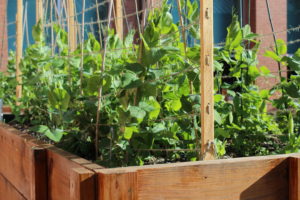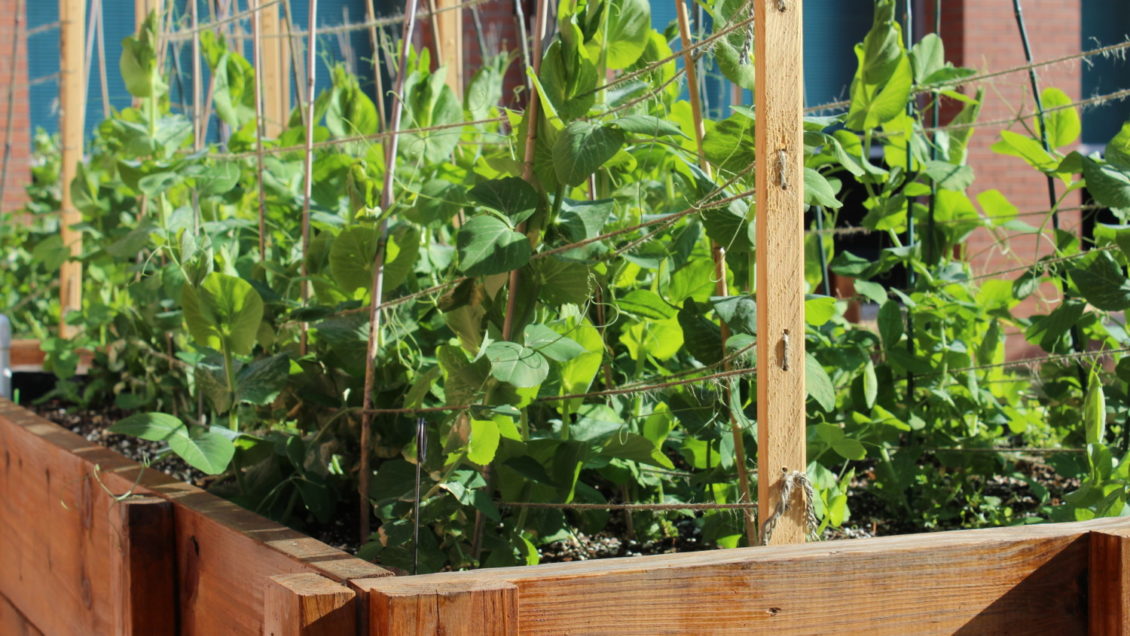CLEMSON, S.C. – Sustainability is key for the future of food production and Clemson researchers are helping the next generation of plant breeders learn how to develop plants that are healthy for humans and safe for the environment.

The researchers are offering a free Organic Plant Breeding Institute to teach techniques for growing organic foods.
The Institute will be offered virtually June 7-10. Institute organizers and principle investigators Dil Thavarajah and Rick Boyles said this workshop is designed for students and scholars, as well as anyone else interested in plant breeding and genetics of organic production systems, crop biofortification and human health. The Institute is funded by an Organic Agriculture Research and Extension Initiative (OREI) grant from the United States Department of Agriculture, National Institute of Food and Agriculture (USDA-NIFA).
“During the Organic Plant Breeding Institute, participants will learn about organic techniques for growing pulse crops and cereal crops to help meet future nutrition demands,” said Thavarajah, a researcher in the Department of Plant and Environmental Sciences. “Students will learn about plant breeding methods, available technologies, phenotyping techniques that can be used in fields and greenhouses, as well as biofortification and more.”
Sarah Powers, is a Clemson University doctoral candidate from Lexington, North Carolina, who believes learning how to grow organic foods will be important to feeding a global population expected to reach 10 billion people by 2050. Her research looks at how organically growing pulse crops can improve nutrition while lowering production costs. Her research focuses on phosphorus-use efficiency in field pea.
“Our population is growing at an exponential rate,” Powers said. “We’re running out of some of the resources we’ve always relied on in conventional agriculture. So, switching over to more organic and sustainable practices is really important for our future.”
Boyles said the Institute will include presentations from world renowned plant breeding and nutrition experts as well as training sessions focused on practical breeding techniques, genomic data processing, genetic mapping, and genomic prediction.
“We’re combining proven research strategies to improve the productivity and quality of crops under low-input, organic management practices. As research results and products are generated from these efforts, we’re working closely with extension personnel to maximize outreach and support the land-grant mission of Clemson University,” said Boyles, a researcher at the Pee Dee Research and Education Center. “As part of the Advanced Plant Technology Program, we’re also training the next generation of plant breeders and scientists.”
Workshop topics include: Organic breeding, biofortification, DNA sequencing and processing, genomics and nutrigenomics, phenotyping techniques, organic production, as well as management and processing.
“Skills that students gain by attending the Institute will be very marketable and will make them very well prepared for the workforce,” said Paula Agudelo, College of Agriculture, Forestry and Life Sciences associate dean for research and director of the Clemson University Experiment Station.
For information, go to https://www.clemson.edu/cafls/organicbreeding/orei/opbi/index.html.
Land-grant universities were created by the U.S. Congress in every state to provide educational opportunities for all residents through teaching, research and the Cooperative Extension Service. Clemson’s statewide Public Service and Agriculture (PSA) system conducts research, Cooperative Extension Service and regulatory programs that improve and protect economic prosperity and well-being for all South Carolina citizens. These programs develop and deliver impartial science-based information in five areas that align with the national land-grant university system and touch the life of every South Carolina resident. Programs are provided in these areas: agribusiness productivity and profitability; economic and community development; environmental conservation; food safety and nutrition; and youth development and families.
For more information on programs, contact the local Clemson Extension office.
-END-
This study is funded by the Organic Agriculture Research and Extension Initiative (OREI) Award No. 2018-51300-28431/Proposal No. 2018-02799, of the United States Department of Agriculture, National Institute of Food and Agriculture (USDA-NIFA). Any opinions, findings, conclusions, or recommendations expressed in this material are those of the authors and do not necessarily reflect the views of the USDA-NIFA.
Get in touch and we will connect you with the author or another expert.
Or email us at news@clemson.edu

